The pursuit of optimal sound quality and the preservation of cherished music collections is a constant endeavor. One aspect that contributes to the audio experience is the proper use of record weight. In this article, I will explore their purpose, functionality, and the impact they can have on vinyl playback for you. Understanding the significance of vinyl weight is essential for enhancing your listening pleasure. Get ready to discover how this often-overlooked accessory can unlock the true potential of your vinyl collection.
Understanding record weights
A vinyl record stabilizer or clamp is an accessory used in vinyl playback systems to ensure proper contact between the record and the turntable platter. They are typically circular and made of various materials, such as metal, acrylic, or composite, and come in different sizes and weights. Their primary purpose is to improve the overall sound quality and playback performance by addressing common issues associated with vinyl records.
What does a record weight do?
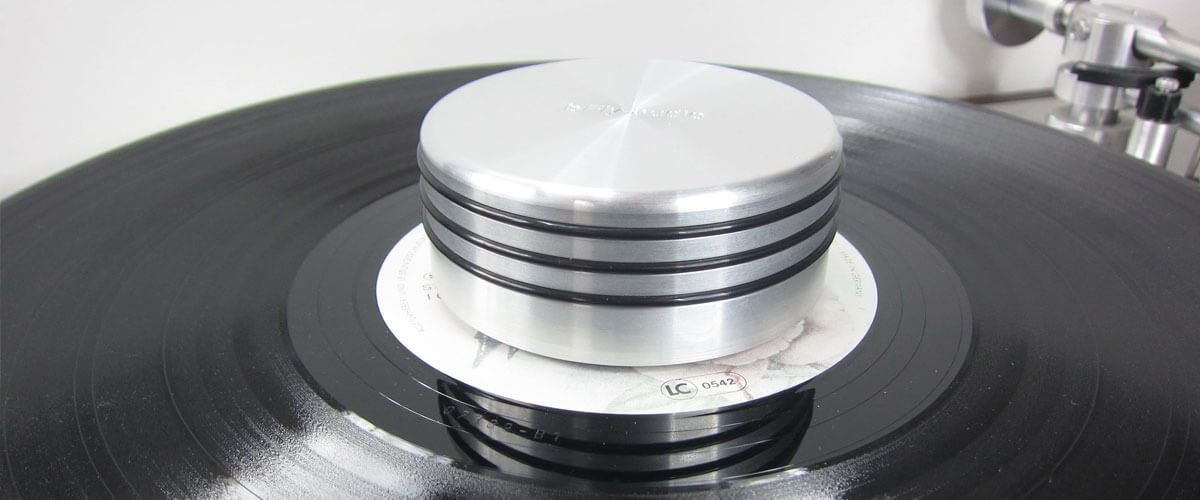
This device helps to minimize vibrations, resonances, and other disturbances that can negatively affect sound quality. By pressing the record firmly onto the platter, the weight helps to ensure a more stable and consistent rotation speed, reducing flutter.
Vibration damping
Some record weights incorporate materials or design elements that help dampen vibrations. These features can include inner layers of rubber or cork, which absorb vibrations and reduce resonance which can negatively impact the sound quality. Vibration damping helps to minimize unwanted vibrations from reaching the stylus and affecting the playback.
Keeping records flat
Warped records can cause playback issues and affect sound quality. To address this, certain record weights have a concave shape on the underside or include a padded surface. When placed on the record, the weight applies pressure and flattens out minor warps, ensuring the record remains as flat as possible during playback.
Improving wow and flutter
These refer to speed variations and irregularities in the rotation of the turntable platter. Excessive wow and flutter can distort the sound and affect the overall listening experience. A properly designed record weight can help minimize them by providing additional stability and maintaining consistent contact between the record and the platter. This is particularly beneficial when using turntables with less precise or stable speed control mechanisms.
Types of record weights
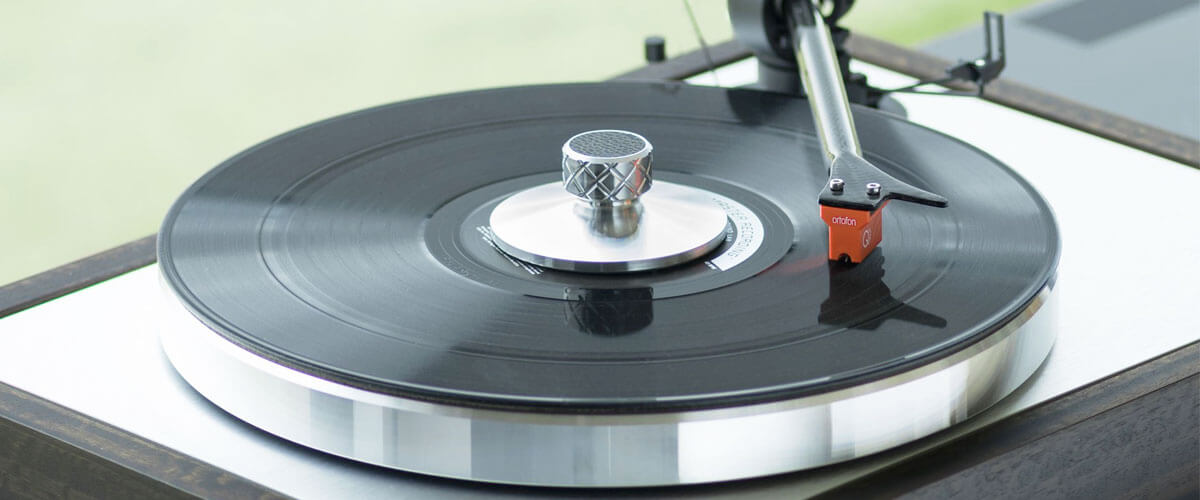
From clamp-style weights to standard weights and innovative designs, each type offers unique features and benefits.
Clamp style record weights
It is also known as a record clamp, featuring a central spindle that connects to the turntable’s spindle and a clamp mechanism that presses down on the record.
There are 4 common varieties of clamp-style record weights:
- Screw-down clamp: it has a threaded post that screws onto the turntable spindle. The clamp is usually a large disc or weight that sits on top of the record.
- Quick-release clamp: it features a mechanism that allows easy attachment and removal from the turntable with a spring-loaded or lever-operated design. Split-clamp: it has a two-piece construction that allows them to be placed around the outer edge of the record. This design provides even pressure distribution across the record.
- Hinged clamp: it has a hinge mechanism that allows them to open and close around the record. They often have a locking mechanism to secure the clamp in place once it is positioned on the record.
Weight style record weights
This type refers to a category of record weights that primarily focus on adding mass or additional weight to the turntable setup. They also have their own classification:
- Standard: they are simple, solid weights that are placed on top of the record and made of heavy materials like metal (e.g., brass, stainless steel) or dense acrylic.
- Multi-layered: they often have a metal core surrounded by an outer layer made of another material such as cork, rubber, or felt.
- Adjustable: consist of a combination of weights and a calibrated mechanism that allows you to adjust the total weight applied to the record.
- Dual-Function: combine additional features to serve multiple purposes. For example, they may incorporate a leveling bubble or a stylus pressure gauge.
Which type is better to choose
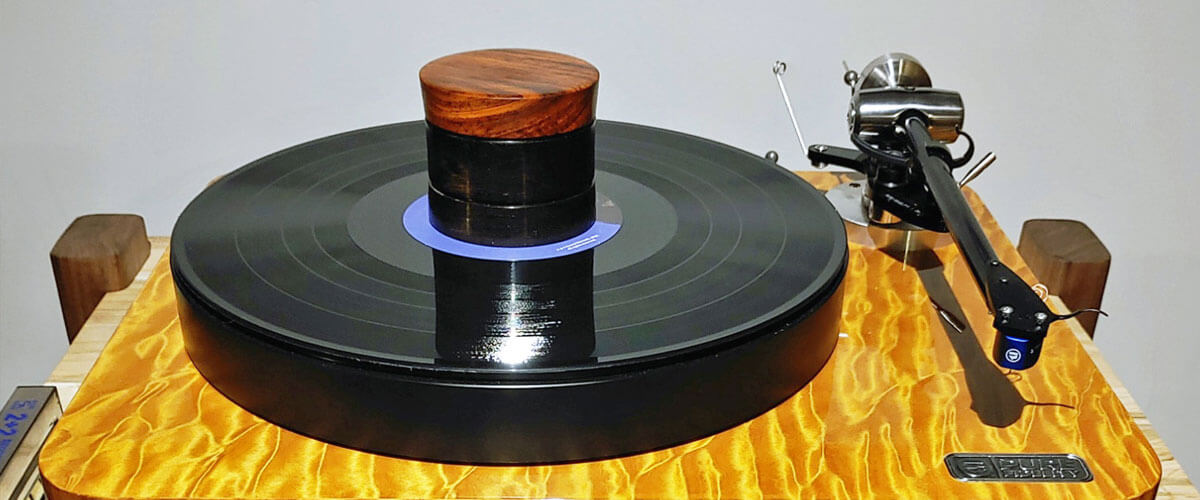
If comparing record clamp vs. weight, the first is primarily used to secure the record and help with warps, and the other adds mass and stability. However, you may still find it difficult to choose any of them. I prepared a list of some factors to consider when making your decision:
- Turntable design: Consider the specifications of your turntable. Some of them may already have built-in features or components that effectively address issues like vibration, resonance, or record stability. In such cases, a standard weight can be sufficient. On the other hand, if your turntable lacks effective vibration damping or requires additional stability, I’d recommend choosing a clamp-style weight.
- Record condition: If you have records with significant warps or irregularities, a clamp-style weight that provides extra pressure to flatten the record could be advantageous. If your records are generally flat and well-preserved, a standard weight or a weight with vibration-damping properties may be suitable.
- Playback improvement goals: If you want to minimize vibrations and resonance, a weight with multiple layers or materials could be beneficial. If you’re primarily concerned with stabilizing the record and reducing wow and flutter, a weight that adds mass and ensures firm contact between the record and platter may be preferable.
- Budget and personal preference: Some weight styles may be more affordable than others, and the choice may also depend on aesthetics and ease of use. For example, clamp-style weights provide convenience and secure record placement, but they may be more expensive than standard weights.
Is a record weight worth it?
If you have a high-quality turntable with excellent components, good isolation, and stable speed control, you may not necessarily need a record weight. Modern turntables are designed to minimize vibrations and provide stable playback. In such cases, the benefits of a record weight might be minimal or negligible. But if you wonder whether you should get it or not, I will try to explain why it may be worth investing in.
Record weight can be useful if you have a collection of records with significant warps or irregularities. If your records are generally in good condition and do not exhibit significant warping, the benefits of a record weight may be less noticeable.
If you are seeking to improve the sound quality of your vinyl playback, a record weight can potentially help. Some vinyl enthusiasts find that using a record weight enhances their listening experience and provides a greater sense of stability and engagement. If you appreciate the tactile aspect of vinyl playback and value the extra assurance that a record weight provides, it may be worth it to you, even if the improvements are subtle.
FAQ
Do record weights make a difference?
Yes, record weights can help stabilize the record during playback, reduce vibrations and resonance, improve contact between the record and the turntable platter, and potentially enhance the overall sound quality.
Do record weights fix warped records?
Record weights can help mitigate minor warps in vinyl records. The weight’s pressure can exert a flattening effect, reducing the visible warping and keeping the record more leveled during playback.
Can you use a record weight on a direct drive turntable?
Yes, you can use a record weight on a direct drive turntable due to some of these turntables may still benefit from the additional stability and damping provided by a record weight.

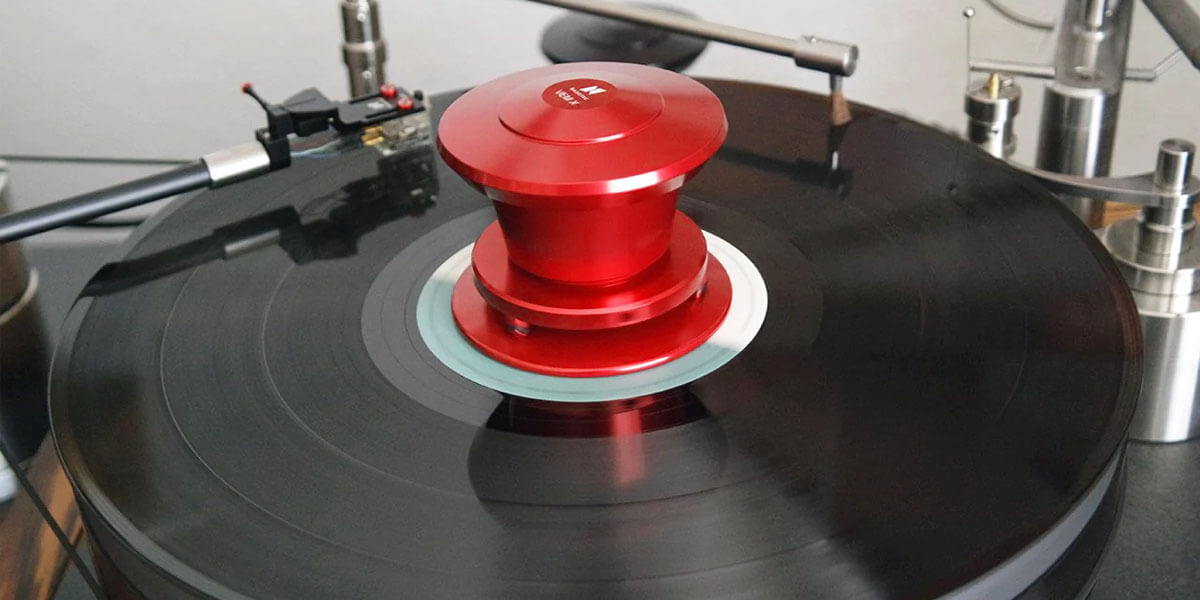



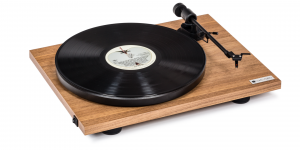


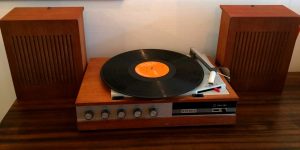
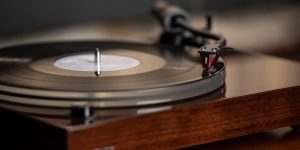

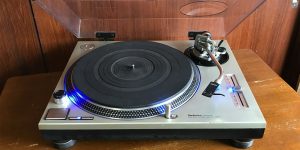
![Connect a Turntable to Your Wireless Bluetooth Speakers [Easy Guide]](https://www.vinylrecordday.org/wp-content/uploads/2021/12/tuntable-and-sonos-speaker-300x150.jpg)

